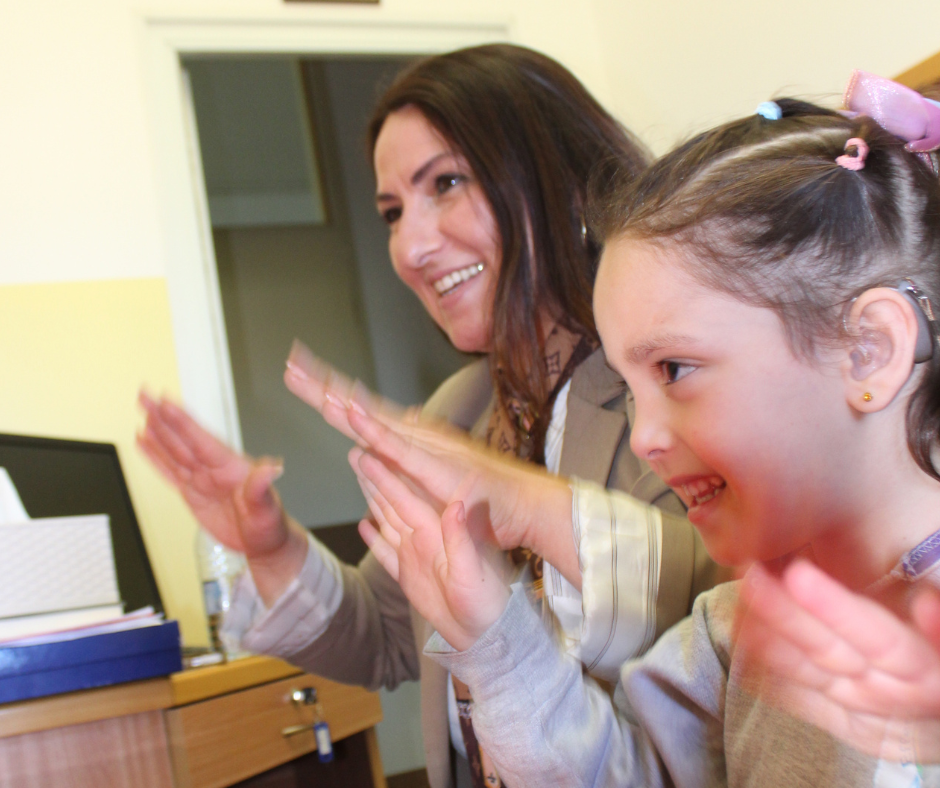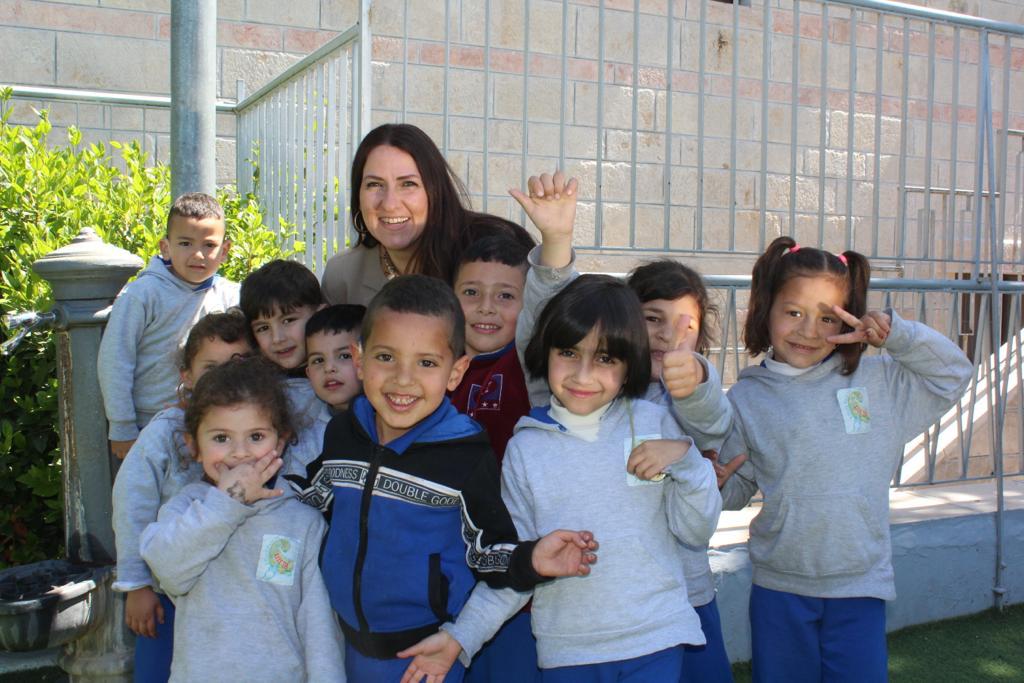More than a teacher: Micheline Al-Sous has been teaching love and patience at Effeta for 26 years!

Viola Nouhi, October 2023
It was 1997 when Micheline Al-Sous, one of the 9 speech therapists at the Effeta Institute, discovered the school in Bethlehem after graduating in educational sciences and was immediately impressed by the innovative educational method. "Before that moment, I had never seen deaf children speak!" she confesses timidly.
Over time, Micheline and many of her colleagues decided to learn the tricks of the trade from those who had seen Effeta born: "The Sisters taught us everything they knew about speech therapy!" Until 2013, there was no speech therapy faculty in Palestine, and those who wanted to pursue this path had to go to Jordan. Then, Birzeit University inaugurated the audiology and speech therapy degree program.
"In a Palestinian context," Micheline explains, "speaking is crucial for these children because sign language is not understood by everyone in the West Bank. That's why it's important to prepare the children to interact independently." "What I wonder is, if these children go to the bank or hospitals, how will they make themselves understood with sign language alone?" continues the speech therapist. "There should be an interpreter in every public place, but often that's not the case. So, the role of speech therapy is precisely this: to enable children to make themselves understood by everyone!"
Families also play a fundamental role in this education, as the speech therapist emphasizes. Since she has been at Effeta, many parents, seeing the results, decide to entrust their children to the guidance of teachers and Sisters, despite the majority being Muslim. The success of the students is a result of many people working behind the scenes: parents, speech therapists, teachers, and the Dorotee Sisters.
In Bethlehem, however, politics intertwines with everyday life, and events happening outside Arafat Street, where the Institute is located, are part of the lives and education of the hearing-impaired children. As Al Sous explains, most of the children come from Hebron (a city about 20km to the south of the Institute), and for them, coming to school is a challenge. They often find the main roads closed and must always find alternatives, which means they have to wake up early, arriving at school already tired.
The current and past socio-political situation has also influenced the training of teachers: "Years ago, we had many relationships with other countries like the Netherlands and Italy. Many doctors and professors used to come and give us advice and visit the school, but now the number has drastically reduced." But at Effeta, no one has ever been discouraged, and the work continues both with the children and with the parents: "For years, we have been holding many family meetings; we understand that having a deaf child is a challenge, and we want to help them."
For Micheline, Effeta is not a workplace; it is home, as she insists on emphasizing. It is a family made up of many people, young and old, Christians and Muslims, but it is a family where love and patience are never lacking. Every child who leaves that school able to speak is a success shared by all.
